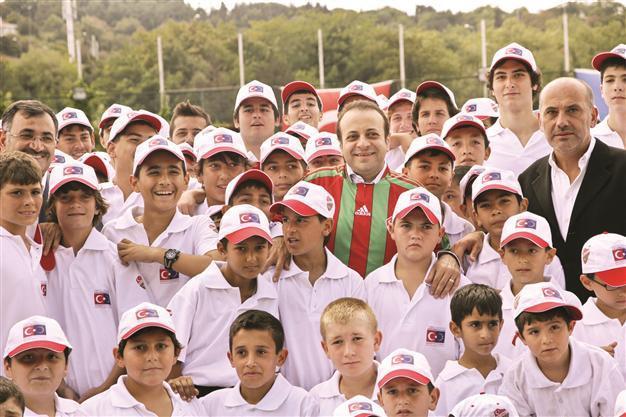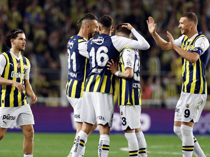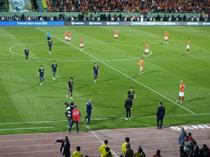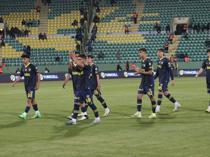Bağış invites Christofias on condition
ISTANBUL

Bağış (C) says Greek and Turkish Cypriot leaders should come to Turkey together.
Turkey’s EU minister and chief accession negotiator, Egemen Bağış, has unofficially invited Greek Cyprus President Demetris Christofias to Istanbul – albeit with one condition: He must sit at the same table as his Turkish Cypriot counterpart.Bağış told the Hürriyet Daily News yesterday that Christofias was “looking for a reason to come to Istanbul” and that he should talk to Turkish Cypriot President Derviş Eroğlu about the possibility of coming to Istanbul to watch a Europa League game between Fenerbahçe and Greek Cypriot club AEL Limassol scheduled for Nov. 8.
“I will be happy to be the host provided that they will come together and sit at the same table,” Bağış said in a phone interview.
Football has played a significant role in Turkish foreign diplomacy in the past, with national team matches against Armenia in 2008 and 2009 paving the way for failed reconciliation efforts between the two countries.
Fenerbahçe, which was relegated to play in the Europa League after being knocked out of the Champions League playoff round on Aug. 29, was drawn in Group C of the competition along with AEL Limassol, France’s Olympic Marseille and Germany’s Borussia Mönchengladbach.
Fenerbahçe is scheduled to travel to Greek Cyprus on Oct. 25 and the experience might be difficult when considering Turkish clubs’ earlier visits to the island.
Bağış also highlighted the possibility of protests against the Turkish club. “When Galatasaray went there, they had major troubles,” Bağış said. “The problems they faced were the result of a non-state. Maybe they should seek help from Turkish Rep. of Northern Cyprus for the Fenerbahçe game.”
Last year, Galatasaray women’s volleyball team was subjected to debris thrown from the stands during a game with Apollon Limassol, and there were similar attacks during Pınar Karşıyaka’s basketball match against APOEL.
The minister made assurances that the Greek Cypriot team would not face such troubles in the game in Istanbul.
“They should not be worried, they will be hosted in Istanbul in the best way possible,” Bağış said. “I personally guarantee that there will not be any problem.”
It is too early to speculate whether the Europa League games between the Turkish and Greek Cypriot clubs could lead to a kind of “football diplomacy” similar to the one between Turkey and Armenia.
In September 2008, Abdullah Gül became the first Turkish president to visit Armenia when he traveled to Yerevan for a World Cup football qualifier. In the aftermath, the two countries agreed on a road map to re-establish diplomatic relations, including a plan to reopen the border.
An accord was signed by the foreign ministers of the two countries, Ahmet Davutoğlu and Eduard Nalbandian, on Oct. 10, 2009, in Zurich, and President Serzh Sargsyan subsequently returned the favor, traveling to Turkey to watch the teams’ second qualifier against each other four days later.
However, the reconciliation efforts were damaged in subsequent months when Turkish Prime Minister Recep Tayyip Erdoğan said Turkish ratification of the protocols depended on a peace deal in Nagorno-Karabakh. Sargsyan announced the suspension of the ratification process in April 2010 on a request from the ruling coalition.
















